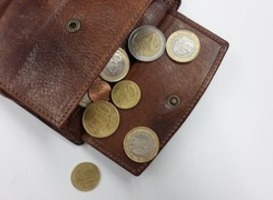How can we help farmers avoid spilling gallons of chemical fungicides on their fruits and vegetables while fighting the mold that attacks crops? Researchers from the LRPI laboratory of the biotechnology engineering school Sup’Biotech in Villejuif have developed a natural antifungal product.
Their discovery has just won the Ile-de-France prize for the 3rd bioeconomy trophies, a competition organized by the regional directorate for food, agriculture and forestry. This award qualifies them for the national final scheduled by the end of the month.
An additional alternative to chemical treatments
The name of their project? Plant Cooperation. “We promote the products generated by the harvests (leaves, roots, peelings, carrot tops, etc.) by exploiting their natural immunity to make bio-control products with antifungal properties that will fight against diseases of fruits and vegetables, especially molds ”, summarizes Agnès Saint-Pol, teacher-researcher at Sup’Biotech – a school of around 1,000 students – and head of the laboratory for partnership research in agrifood engineering.
Its main advantage is that growers do not have to resort to synthetic antifungal treatments from the petrochemical industry. Ideal for organic farmers.
“They are looking to turn to more natural treatments because regulations are in the process of imposing it and customer demand for food with less pesticides is increasing, add Patrick Gonzalez, teacher-researcher at the laboratory, and Valentina Gligorijevic, assistant engineer. But they are hampered in their approach by the cost of biocontrol products, by lower efficiency than synthetic chemical treatments, rather cumbersome application and not wide enough to offer. Our project thus provides them with an additional alternative. “
It also makes it possible to add value to cultured co-products (leaves, peelings, etc.) which have not been exploited until now. “Farmers leave them in the fields or transform them into compost,” explains Agnès Saint-Pol. With our project, these co-products, from which only the active part would be extracted, would generate additional income for them. “
The laboratory team, who have worked on this project for two years, hopes that this award will bring them new contacts and a spotlight to further develop their work. The three national winners will each win 10,000 euros, communication actions and support from a banking operator.
–


